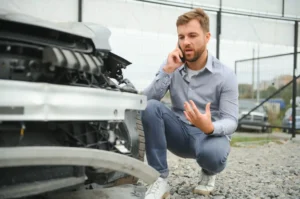California Lemon Law: What Qualifies as a Lemon Vehicle?
Buying a car should be exciting, not stressful. But for some California drivers, that new car turns into a constant headache. If your vehicle has ongoing problems that the dealer can’t fix, you might be protected under the California Lemon Law what qualifies as a lemon. So, how do you know if your car qualifies as a lemon?
This guide breaks down the basics to help you understand your rights and what to do if you’ve been sold a faulty vehicle.
What Is California’s Lemon Law?
The California Lemon Law, part of the Song-Beverly Consumer Warranty Act, protects buyers and lessees of new and certain used vehicles. If your car has a serious issue that can’t be fixed after multiple repair attempts, the manufacturer may need to replace the vehicle or give you a refund.
👉 Learn more from Arash Law’s Lemon Law Attorney page.
How Do You Know If Your Car Is a Lemon?
To qualify as a lemon under California law, your vehicle must meet all of these conditions:
1. The Defect Is Substantial
The issue must affect the car’s use, value, or safety. That includes things like faulty brakes, engine problems, or electrical failures. Minor defects like loose knobs or rattling noises usually don’t count.
2. You’ve Given the Dealer a Fair Chance to Fix It
California law assumes your car is a lemon if, within 18 months or 18,000 miles:
The same issue persists after 4+ repair attempts
A dangerous defect still exists after 2+ attempts
Your car has been in the shop for 30+ cumulative days
👉 For a full step-by-step breakdown, visit Arash Law’s Lemon Law Claim Guide.
3. The Defect Happened During the Warranty Period
The problem must start while the vehicle is still under the manufacturer’s warranty. Repairs can continue after the warranty ends, but the issue itself needs to be first reported while covered.
What Types of Vehicles Are Covered?
California Lemon Law applies to a wide range of vehicles, including:
New cars, trucks, and SUVs
Leased vehicles under manufacturer warranty
Certified pre-owned vehicles (if under warranty)
Some business-use vehicles (under 10,000 lbs and 5 or fewer owned)
What Should You Do If You Think You Have a Lemon?
Here’s a clear path to follow:
1. Keep Records
Save every repair invoice, warranty booklet, and communication with the dealer. Accurate records make it easier to prove your case.
2. Contact the Manufacturer
Let them know the issue continues despite repairs. Some manufacturers have formal processes to resolve Lemon Law claims directly.
3. Talk to a Lemon Law Attorney
Even if you’re unsure whether your vehicle qualifies, an experienced attorney can help. Legal professionals understand the fine print of these cases and can negotiate with manufacturers on your behalf.
👉 Start with Arash Law’s legal team to get expert help and a free consultation.
Final Thoughts
If your car keeps breaking down despite repairs, don’t ignore it. You have rights under the California Lemon Law. Knowing what qualifies as a lemon can help you get a refund or a replacement without added stress.
Don’t wait until it’s too late. Speak to a trusted lawyer and take the next step toward resolving your lemon vehicle issue.
👉 Contact Arash Law today for help with your Lemon Law claim.




